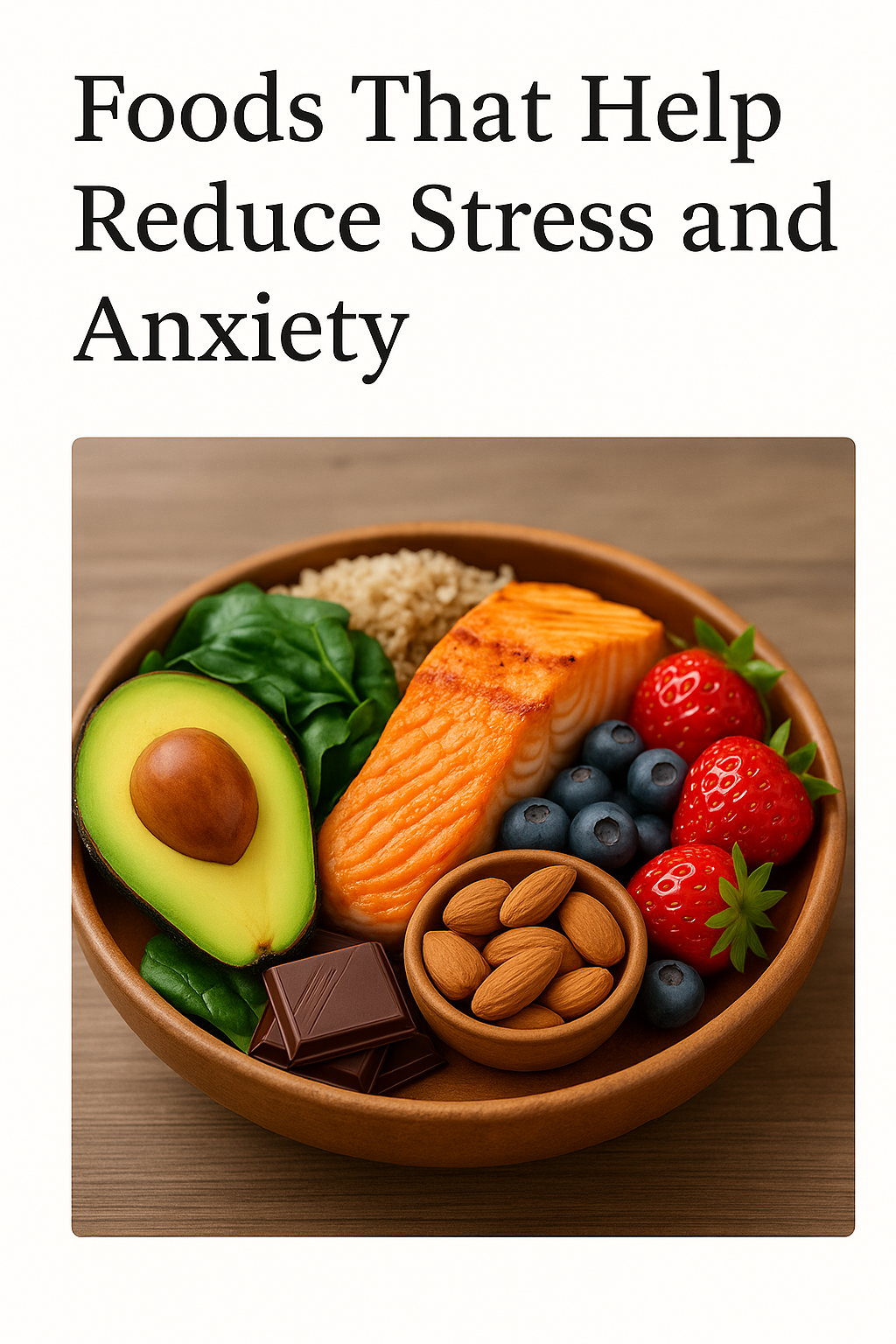What you eat affects far more than just your physical health. Certain foods can calm your nervous system, balance your mood, and help reduce symptoms of stress and anxiety. While food alone isn’t a cure, including the right nutrients in your daily meals can support emotional resilience and mental clarity.
Your brain and body are deeply connected, and the way you nourish one influences the health of the other.
How Food Impacts Mood and Stress
Stress increases the production of cortisol and adrenaline—hormones that, in excess, can lead to irritability, fatigue, poor sleep, and tension. Meanwhile, anxiety affects digestion and blood sugar regulation. Eating the right nutrients helps calm this cycle, supporting a more balanced nervous system.
A steady supply of vitamins, minerals, and healthy fats helps reduce inflammation, regulate hormones, and stabilize blood sugar—all of which contribute to a calmer mind.
Best Nutrients for Stress Reduction
Magnesium helps relax muscles and nerves
Omega-3 fatty acids support brain health and reduce inflammation
B vitamins aid in energy production and nervous system function
Tryptophan helps produce serotonin, the feel-good neurotransmitter
Antioxidants reduce oxidative stress and support immune balance
Fiber helps stabilize blood sugar and support gut health
Including a variety of these nutrients in your diet can help you feel more grounded and emotionally stable.
Foods That Naturally Help With Stress and Anxiety
Fatty fish like salmon, sardines, and mackerel are rich in omega-3s that support brain function and reduce mood swings
Avocados provide healthy fats and B vitamins, which promote steady energy and cognitive function
Leafy greens such as spinach and Swiss chard are high in magnesium, which helps regulate cortisol
Nuts and seeds like almonds, walnuts, and pumpkin seeds are rich in zinc, magnesium, and healthy fats
Dark chocolate, in moderation, boosts mood and lowers cortisol due to its flavonoid content
Berries such as blueberries and strawberries are high in antioxidants that protect the brain from stress-related damage
Oats and whole grains offer complex carbs that boost serotonin levels naturally
Chamomile tea is known for its calming properties and can help ease tension
Yogurt and fermented foods like kimchi and sauerkraut support gut health, which is closely tied to mental health
Bananas provide potassium and vitamin B6, both involved in nerve function and serotonin production
These foods can be incorporated into your meals or enjoyed as snacks throughout the day.
What to Limit
While focusing on calming foods, it’s also helpful to limit things that can increase stress and anxiety:
Caffeine in excess can increase heart rate and make anxiety worse
Alcohol may initially relax you but disrupts sleep and mood later
Refined sugar and processed foods can cause blood sugar spikes and crashes
Fried foods and trans fats increase inflammation and reduce energy levels
Skipping meals can lead to low blood sugar, irritability, and mental fog
Balance is key—no need for perfection, just a more mindful approach to what supports your emotional health.
Sample Day of Stress-Reducing Meals
Breakfast: Oats with blueberries, walnuts, and a drizzle of honey
Snack: Greek yogurt with pumpkin seeds
Lunch: Grilled salmon on a bed of leafy greens with avocado and quinoa
Snack: A banana with almond butter
Dinner: Stir-fried vegetables with tofu and brown rice
Evening: Chamomile tea with a piece of dark chocolate
This type of eating pattern supplies steady fuel, supports neurotransmitter production, and reduces the stress load on your body.
Final Thoughts: Eat to Support Your Calm
Food won’t solve all your stress, but it can be one of your most powerful allies. By nourishing your body with calming, nutrient-rich ingredients, you’re also taking care of your mind.
Start by adding just one or two of these supportive foods into your day. Over time, these small choices add up—helping you feel more grounded, resilient, and clear-headed, even when life gets hectic.

